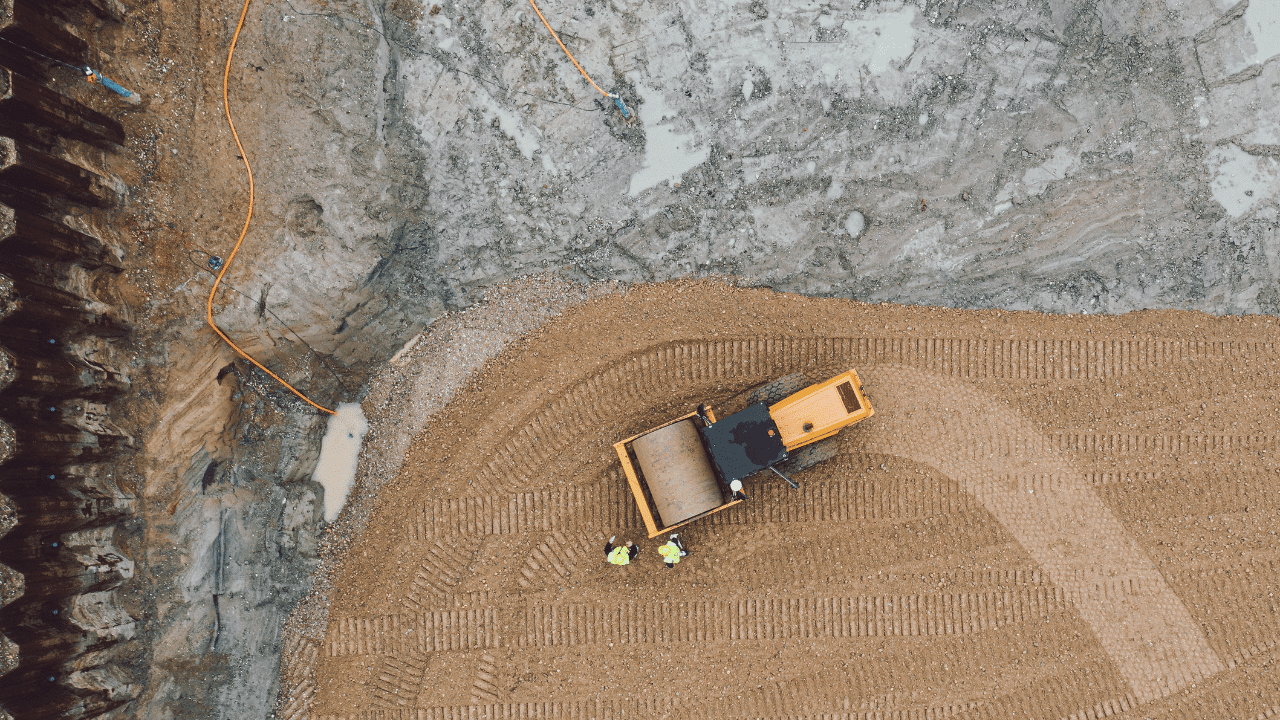10 Proactive Stormwater Compliance Strategies for Construction Projects
Ensuring stormwater compliance is essential for construction projects to protect water quality and comply with regulations.
This blog outlines proactive strategies to help construction professionals manage stormwater runoff effectively and prevent environmental damage.
From obtaining necessary permits (NOIs) to developing and maintaining a Stormwater Pollution Prevention Plan (SWPPP), these guidelines provide a comprehensive approach to stormwater compliance.
1. Obtain the Necessary Permits
Before starting any construction project, it is crucial to obtain all required permits from local regulatory authorities.
These permits, such as construction stormwater general discharge permits or construction activity permits, outline specific requirements for managing stormwater runoff.
Compliance with these permits ensures that your project adheres to local, state, and federal regulations.
2. Develop a Stormwater Pollution Prevention Plan (SWPPP)
A SWPPP is a detailed plan that outlines strategies and best management practices (BMPs) to prevent stormwater pollution.
This plan should address:
- Erosion and Sediment Control: Implement measures to prevent soil erosion and manage sediment.
- Spill Prevention: Establish procedures to prevent and respond to spills of hazardous materials.
- Proper Disposal: Ensure construction materials are disposed of properly to avoid contaminating stormwater.
A SWPPP is a living document and must be regularly updated to reflect changing site conditions and regulatory requirements.
3. Implement Erosion and Sediment Control Measures
Effective erosion and sediment control measures are vital for minimizing soil erosion and preventing sediment runoff.
Key practices include installing silt fences, erosion control blankets, and sediment basins. These measures help maintain site integrity and protect surrounding water resources.
4. Properly Manage Construction Materials
Proper handling and storage of construction materials are crucial to prevent stormwater contamination.
Construction materials, such as concrete washout waters, chemicals, fuels, and paints, should be stored in designated areas away from storm drains or water bodies.
Use secure containers to prevent spills and leaks and dispose of materials according to local regulations.
5. Manage Stormwater Runoff
Implementing measures to control and treat stormwater runoff from the construction site is essential.
Effective strategies include using sediment traps, temporary sediment ponds, and hydrodynamic separators to capture sediment and pollutants before they enter the stormwater system.
These methods help ensure that stormwater runoff is treated and managed properly before it enters natural water bodies.
6. Conduct Regular Inspections and Maintenance
Regular inspections and maintenance are critical to ensuring the effectiveness of stormwater management practices.
Steps include:
- Frequent Inspections: Conduct regular inspections of erosion control measures, sediment traps, and other infrastructure.
- Prompt Repairs: Address any issues or deficiencies promptly with corrective action items to maintain compliance.
- Documentation: Keep detailed records of inspections, maintenance activities, and corrective actions taken.
Proactive maintenance helps prevent non-compliance and ensures the continued effectiveness of stormwater controls.
7. Provide Employee Training
Training construction site workers on stormwater management practices is essential for effective compliance.
Training should cover:
- Proper techniques for storing and handling construction materials.
- Procedures for responding to spills and preventing them from contaminating stormwater.
- Best practices for implementing and maintaining erosion control measures.
Regular training ensures that all workers understand their roles and responsibilities in preventing stormwater pollution.
8. Keep Detailed Records
Maintaining comprehensive records of all stormwater management activities is crucial for demonstrating compliance.
Records should include any changes or updates to the SWPPP, detailed reports of all inspections conducted on-site, and logs of maintenance activities and repairs made to stormwater infrastructure.
Accurate record-keeping helps provide evidence of compliance during regulatory inspections and audits.
9. Monitor and Test Stormwater Discharges
Regular monitoring and testing of stormwater discharges from the construction site are essential in some areas for ensuring compliance with water quality standards.
This involves collecting samples of stormwater discharges, analyzing them for pollutants, and using flow meters to measure the volume of stormwater runoff.
Monitoring and testing help identify potential issues early and ensure that stormwater management practices are effective.
10. Respond to Violations and Adapt
If any violations or non-compliance issues are identified, immediate corrective actions must be taken.
Address the problem promptly to prevent further violations, review and update the SWPPP and stormwater management practices as needed, and adapt to changing site conditions and regulatory requirements.
Proactive response to violations ensures that construction projects remain compliant and environmentally responsible.
Ensuring Effective Stormwater Management in Construction
Effective stormwater compliance strategies are essential for protecting water quality and maintaining regulatory compliance in construction projects.
By obtaining necessary permits, developing and maintaining a SWPPP, and implementing comprehensive management practices, construction professionals can significantly reduce stormwater pollution.
If you have any questions or need further assistance with stormwater compliance, don’t hesitate to reach out to ComplianceGo.
Contact us today to learn more about our stormwater inspection compliance software!

